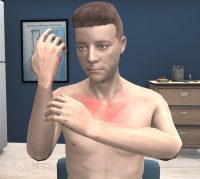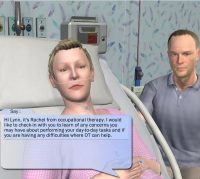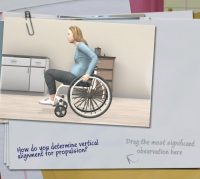
See What's New In NBCOT Navigator®
NBCOT Navigator is a value-added benefit for maintaining your certification. In 2021, Navigator will launch four new tools for OTRs and two new tools for COTAs.
Certificants have earned over 110,000 competency assessment units (CAUs) toward renewal and state licensure with the NBCOT Navigator. To date, forty-three states and the District of Columbia recognize Navigator as an option toward state licensure renewal. Navigator is open to all OTRs and COTAs at no additional charge. Take advantage of this value-added benefit for maintaining your certification.
Over 130,000 tools accessed this year—464,000 since launch in 2015
Over 33,000 CAUs earned this year (remember these tools are at no additional charge!)
Revamped Mini Practice Quizzes
Earlier this year, we revamped some of the mini practice quizzes within the Navigator. These short multiple-choice quizzes are designed to assess knowledge of contemporary OT practice grounded by evidence-based literature. Try one of the revamped quizzes today!
- Home Health
- Community Mental Health I
- Hospital & Community Mental Health II
- Inpatient Rehabilitation
- Outpatient Neurocognition
- Outpatient Rehabilitation General
- Outpatient Neurorehabilitation
New Case Simulations
In 2021, Navigator will launch four new tools for OTRs and two new tools for COTAs.
OTR Cases

Burns — This case simulation presents a young adult client who has multiple upper extremity burns and is receiving OT services in an outpatient setting. The OTR must assess skin and wound healing, provide wound care recommendations, and develop an intervention plan for the client’s current stage of recovery. As the certificant progresses through the case simulation, the certificant must consider the client’s pain tolerance, use of opioid medications, and goal to resume prior life roles.

Ethics — Balancing the ever-increasing demands for productivity while adhering to high standards of personal and professional conduct is a dilemma many certificants face today. This case simulation features an OTR who is developing staff resources on ethical practice. Examples of real-world violations of the NBCOT Code of Conduct are presented throughout. It is recommended that certificants have a copy of the NBCOT Code of Conduct to review as they progress through this case simulation.

Oncology — In this case simulation, an adult female patient is readmitted to a community hospital with an advanced stage breast cancer. The hospital-based OTR evaluates the patient and provides intervention as part of the interdisciplinary end-of-life care team. Throughout the case simulation, the certificant must balance ethical decision-making with the patient’s values and needs to support the patient through the dying process.

Spinal Cord Injury — This case simulation presents a young adult client who sustained a C6 ASIA spinal cord injury 5 years ago and is referred to OT to be assessed for a new wheelchair. The client has enrolled in an undergraduate degree program and wants to live on campus when the semester starts. The case simulation will address relationships, community living, and seating and positioning assessments.
COTA Cases
Fall Prevention — This case simulation presents an older adult client who is referred to home health OT services after discharge from a hospital stay for deconditioning and cognitive decline following a fall. The certificant will be represented on-screen as the COTA, who will collaborate with the OTR to select evidence-based approaches to support the client’s goal to age in place.

Caregiver Education & Dementia — This case simulation presents an older adult client in an independent living apartment who has dementia and whose spouse is the primary caregiver. The caregiver has requested more assistance for the client, who is showing signs of decline. Caregiver education is emphasized throughout this case to promote aging in place for the client and stress reduction techniques for the caregiver.
Access Navigator
Access the Navigator today through your MyNBCOT account.
